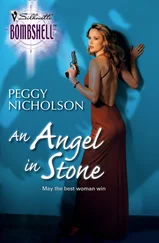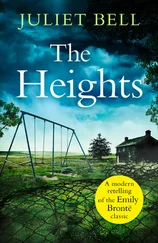“They’re here,” he said, turning back to me, every bit of the boy washed out of his face. I’d lost that boy forever. Today would tell me if I would lose the man, as well.
We quickly dressed without speaking and went down to meet the brigade. There were more men than yesterday—at least two dozen—and they all wore the glowing tartan over their homespun breeks and shirts.
“Did Nan give the rest of you the tartan?” I asked.
Jamie McPhee stepped forward and shook his head. “Nay, we passed it one to the other. The witch hunters came this morning and took Nan and Una. They vow to burn the witches today at sunset. My ma’s one of them …” Jamie’s voice wavered, his brave façade of manhood faltering, but then one of the other men—his brother, I guessed from the family resemblance—clapped his hand on Jamie’s shoulder, and the tartan glowed more fiercely. Jamie straightened up, the tears on his face reflecting the blue and crimson glow.
“We’ll get her back,” Jamie’s brother said.
“Aye,” William said, “we will not let these monsters take our women. We’ll march against the bastards today!”
He pumped his fist in the air, and the two dozen men let out a deafening cheer. Their faces were all streaked with red and crimson now, like the war paint and blue woad tattoos their ancestors the Picts had worn when they went up against the Romans. I had no doubt that they would have stormed Castle Coldclough right this minute, but, remembering the fate of those warriors—and several other doomed Scottish campaigns—I had another thought.
“What say you all come inside and we talk strategy over breakfast?”
Making breakfast for two dozen Scotsmen pretty much exhausted our meager stores, but as I scooped out the last bit of oatmeal from the bin, I realized that if our plan worked I might not be coming back to the cottage. William and I had convinced the men that it made no sense to storm the castle walls, since the whole village had been summoned to the castle for the burning. We would simply join the procession from the village. Once inside the castle walls, the men would form a cordon around the witch hunters. At my signal, they would isolate the other witch hunters and I would take the angel stone from Endicott. Once I had it, I would be able to destroy the nephilim.
“Are you sure you can get the stone off that monster?” William asked when the men left. “The last time you looked at the stone, you fell into a fit. I …” His voice faltered. “I thought I was going to lose you then.”
The look in his eyes told me the distance we had traveled from then to now—only seven weeks, but it felt as if we had known each other for a lifetime. For many lifetimes .
“I’ll get it,” I said, making myself sound surer than I was. “The stone draws on loss and regret, but I know now that everything I did has led to being here with you, and I wouldn’t trade that for anything.” Even if I can’t stay . The unsaid words echoed in the air between us. I knew from the shimmer in William’s eyes that he was thinking them, too, but he only nodded and withdrew a soft leather pouch from his pocket. He handed it to me. “I had this made for you—an early Christmas present, since we may not have a chance to exchange presents later.”
“I was making something for you,” I said, “only it’s not done.” I went to the basket by the hearth and retrieved the scarf I’d been knitting. It was long enough, but I’d delayed finishing it because I’d somehow felt that, once it was done, I’d really be ready to go. Well, there was no point delaying now. I hurriedly cast off the stitches and tore the undyed yarn with my hands. As I broke the thread, I felt something break inside my chest. I gulped back the sob that had risen in my throat. You have to be strong for him , I told myself, as I wove the broken thread back into the scarf with the knitting needles. They were the wooden needles that William had carved for me, and I suddenly couldn’t bear to leave them behind. I tucked them into my knotted hair and turned to William to give him his Christmas present—a scarf that had turned as crimson as heart’s blood when I’d torn off the last thread.
“Ah, with this on I’ll feel like a knight wearing his lady’s favor into battle,” he said, wrapping the scarf around his neck. “I hope my present to you protects you, as well.”
I opened the leather pouch and slid a heavy piece of silver out of it—the Luckenbooth brooch, the two halves made whole.
“I had a traveling silversmith repair it when he passed through town a few weeks ago, so it would keep ye safe when you face that monster.”
Bound together, the two hearts formed a tear-shaped loop for the angel stone. I had guessed that the brooch was made as a receptacle for the stone, but I’d wondered why its maker chose the double-heart design. Now, as William pinned the brooch to my cloak just over my heart, I felt a warmth spreading through my chest and I understood. It took two hearts, linked as one, to contain and overcome the grief inside the angel stone.
“Are ye ready?” William asked.
“Yes,” I told him. “As long as you’re by my side, I’m ready for anything.”
An hour before sunset, the village seemed as quiet as it had on the first day I passed through it, when everyone was hiding from the witch hunters. But I soon saw there was a difference. In almost every window hung a small scrap of tartan. The brightly colored bits of cloth waved in the wind like battle flags. Each family that would send one of their sons to carry the tartan to the castle had hung the banner, just as someday British families might hang a Union Jack in the window when their sons went to war. As we passed each house, the door would open and a young man would come out and fall into step behind us. Their mothers and sisters came, too. I even saw Jeannie MacDougal and Aileen join the crowd, their arms linked. By the time we reached the town gate, we had assembled a crowd. When I turned around and saw all their faces bathed in the glow of the setting sun and the tartan, I thought of what Nan Stewart had told me—or would tell me in the twenty-first century: You’ll need a village .
Well, we certainly had one.
The road to the gloomy castle plunged into a deep ravine and then climbed back up the steep, rocky ascent. As soon as I stepped into the abyss called Coldclough, I felt a deathly chill travel from the soles of my feet up my spine and understood why the place had been so named. Strangely, though, the snow that had fallen last night and blanketed the surrounding countryside did not cover the ravine. It had either melted or—I felt with a queasy certainty—dissolved in midair, as if even the snow refused to touch this tainted ground. Certainly nothing grew from the black rocky soil on either side of the cobblestone path. The land looked as if it had been blasted by an atomic bomb. No bird or animal stirred through the wasteland. The only sounds were the footsteps of the villagers following me, but even those were muffled. Halfway down, I was seized by the fear that the entire population of Ballydoon had been swallowed by the gaping mouth of the ravine and I had been left alone.
I spun around and saw that William and the other men had spread their plaid over the crowd to shield them from the unnatural cold. William stepped toward me to envelop me in the tartan mantle, but I held up my hand to stop him and shook my head. Before I faced Endymion, I had to know all I could about the nephilim, and I understood now, as I turned and continued walking into the gorge, that this place held the key to who they were. The cold told a story. It was the cold of expulsion, of being cast out. It was the cold a baby would feel left naked on a mountaintop to die. It was the cold a lover would feel seeing love die in a beloved’s eyes. It was the cold I’d felt seeing Bill die. When I reached the bottom of the ravine, my teeth were chattering. The ground was covered with blackened and twisted vines. I knelt and touched one and found it was hard, cold stone. As I stared at them, I realized that the petrified vines had once been honeysuckle vines, like those that grew behind my house in Fairwick, surrounding the door to Faerie.
Читать дальше
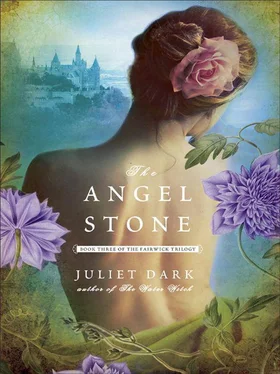

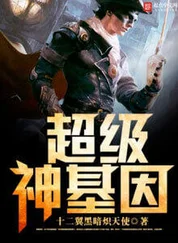


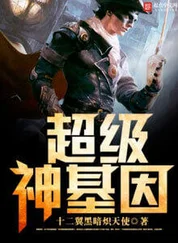


![Twelve Winged Dark Burning Angel - Супер Ген Бога. Том 2 [101-200 главы]](/books/412125/twelve-winged-dark-burning-angel-super-gen-boga-tom-2-101-200-glavy-thumb.webp)
![Twelve Winged Dark Burning Angel - Супер Ген Бога. Том 1 [1-100 главы]](/books/412126/twelve-winged-dark-burning-angel-super-gen-boga-tom-1-1-100-glavy-thumb.webp)
